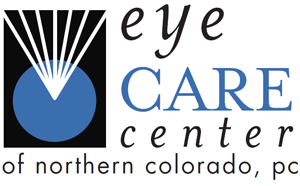For your child to do their best, they have to be able to see their best. Sometimes that requires glasses. In fact, a clinical spokesperson for the American Academy of Ophthalmology asserts that almost 40% of children in the United States are in need of glasses. To ensure your child’s optical health you should have their first eye exam at three or four years of age and then every other year. Though school screenings are helpful, we recommend an eye exam with a qualified eye doctor.
Once you know that your child needs glasses, Oxford Eye Hospitals recommend that they wear them full time to develop their vision to maximum potential. Though your child’s vision develops until around age 8, some children will need to wear glasses into their teen years. Others will continue to wear them for the rest of their lives.
Understanding the necessity of glasses for your child, how do you help them to adjust to wearing them? Expect that it will take anywhere between two and eighteen weeks for your little one to adapt. Here are some helpful strategies to support the transition.
Talk about it
It is vital that you introduce the idea of glasses to your child and listen to their feelings. They may be excited at the prospect! Needless, talking can help address any of their concerns and correct any of their misconceptions.
Do a little research
Find out some of your child’s favorite bespectacled TV, movie or book characters and make a point to comment on how cool they are. Or pick up a few children’s books that address the topic and read them together.
Involve your child
Let your child pick their own frames. They will enjoy wearing something they like and will feel a part of the process. Give them ownership of those eyeglasses. Have them pick out their own case and then help them to decorate it.
Make sure they fit
Make sure that their frames fit correctly. They aren’t meant to “grow into” their glasses and they won’t want to keep them on if they aren’t comfortable. Even if they feel fine when leaving the eye center, your child may find them awkward or distressing once home. Come right back into a vision center near you and we will adjust them. Through the life of your eyeglasses, we offer unlimited free cleaning and adjustments.
Show them
Show your child the difference their glasses make in their ability to see. Take them outside to look at the trees with and without their specs. Have them perform a favorite activity. Encourage them to notice how much easier it is to see the whiteboard or read their books.
Develop a fun routine
Give the glasses their own designated spot and develop a daily routine. Add eye care to their morning and evening procedure between brushing their teeth and lights out. Make sure they have the tools necessary to clean their spectacles each morning and on the go. For toddlers, have them say goodmorning and goodnight to their glasses or “wake them up” and tuck them into bed. Their eyeglasses should become their new trusted companion.
Stay Positive
Give them compliments when they wear their glasses. Use positive reinforcement, like a gold star or an extra treat when they stick to their routine independently or wear their glasses all day.
Participate and celebrate
Put your own glasses on and start a Spectacles Club with your child. If you don’t wear glasses, pick up a pair of empty or clear frames to wear together. Or have an eyeglasses themed party to celebrate your child’s new accessory. Have pairs of fake glasses for all your child’s friends to don for the event.
Be Patient
Your child may love their glasses or they may not, but they will eventually discover the benefits of wearing them. Remain calm and caring during the process and they will find it easier to adapt.
Ask your eye doctor for more tips!
Your personal eye doctor will be able to give you even more tips on how to make the transition a positive one.
Contact your local Lafayette or Longmont eye doctor to make an appointment for your child today!
References
https://www.ouh.nhs.uk/patient-guide/leaflets/files/64762Pglasses.pdf

